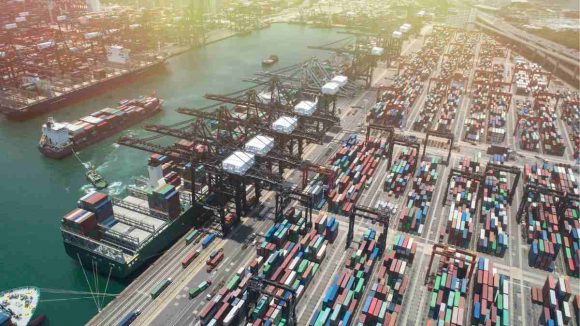The Federal Trade Commission (FTC) has found that large grocery stores didn’t play fair when they stocked shelves during the pandemic by using their size as an advantage.
This information contained in the report was only released a few days ago, placing the impact of COVID-19 on supply-chain disruptions back in the spotlight. It has now been revealed that some large purchasers pressed their suppliers for “favorable allocations of products in short supply.”
At the start of the pandemic in 2020, many companies suspended policies that would penalize suppliers for not filling orders that were in shortage. “However, when suppliers could not fulfill every order, simply having the product in stock became a point of competitive differentiation for wholesalers and retailers,” states the report.
To gain access to scarce products, most larger companies used “policies that imposed strict delivery requirements on their upstream suppliers and threatened fines for noncompliance.”
This is how large retailers allegedly managed to keep the shelves stocked when it was impossible for most companies. It edged out smaller rivals when most stores struggled to source many products to fill shelves.
Grocery supply chain disruptions
It’s been four years since the deadly COVID-19 pandemic sent shockwaves through the world. It caused havoc in families, hospitals, economies, and businesses. Many businesses are still learning and recovering from the devastating financial impact. The FTC has confirmed how it has affected the supply chain industry.
Many lessons can still be drawn from these findings to help identify and prevent similar crises in the future.
The report found that consumers were severely impacted by the supply chain disruptions. Food prices spiraled out of control and essential products fell short.
“Notably, consumers are still facing the negative impact of the pandemic’s price hikes,” says the FTC. The commission has also found that some in the grocery retail industry have used “rising costs as an opportunity” to increase prices further. However, it has never been adjusted back, post-pandemic.
Supply chain disruptions changed the game
Supply chain disruptions also changed the dynamics of trade promotions. Trade promotions represent a significant revenue stream for many wholesalers and retailers.
With a drop in these payments during COVID-19, the impact on “retailers that were more
dependent on promotional funds” was severe. It also made it harder for them to compete with rivals with different pricing strategies.
Bottlenecks and price inflations were also the result. “The pandemic made clear that supply chain bottlenecks, which can be created or exacerbated by limited competition. [It can also] leave markets exposed to major supply chain shocks,” says researchers of the report.
As a result, it further harmed competition and allowed major firms to entrench its dominance.
About the author
Mia is a multi-award-winning journalist. She has more than 14 years of experience in mainstream media. She's covered many historic moments that happened in Africa and internationally. She has a strong focus on human interest stories, to bring her readers and viewers closer to the topics at hand.











